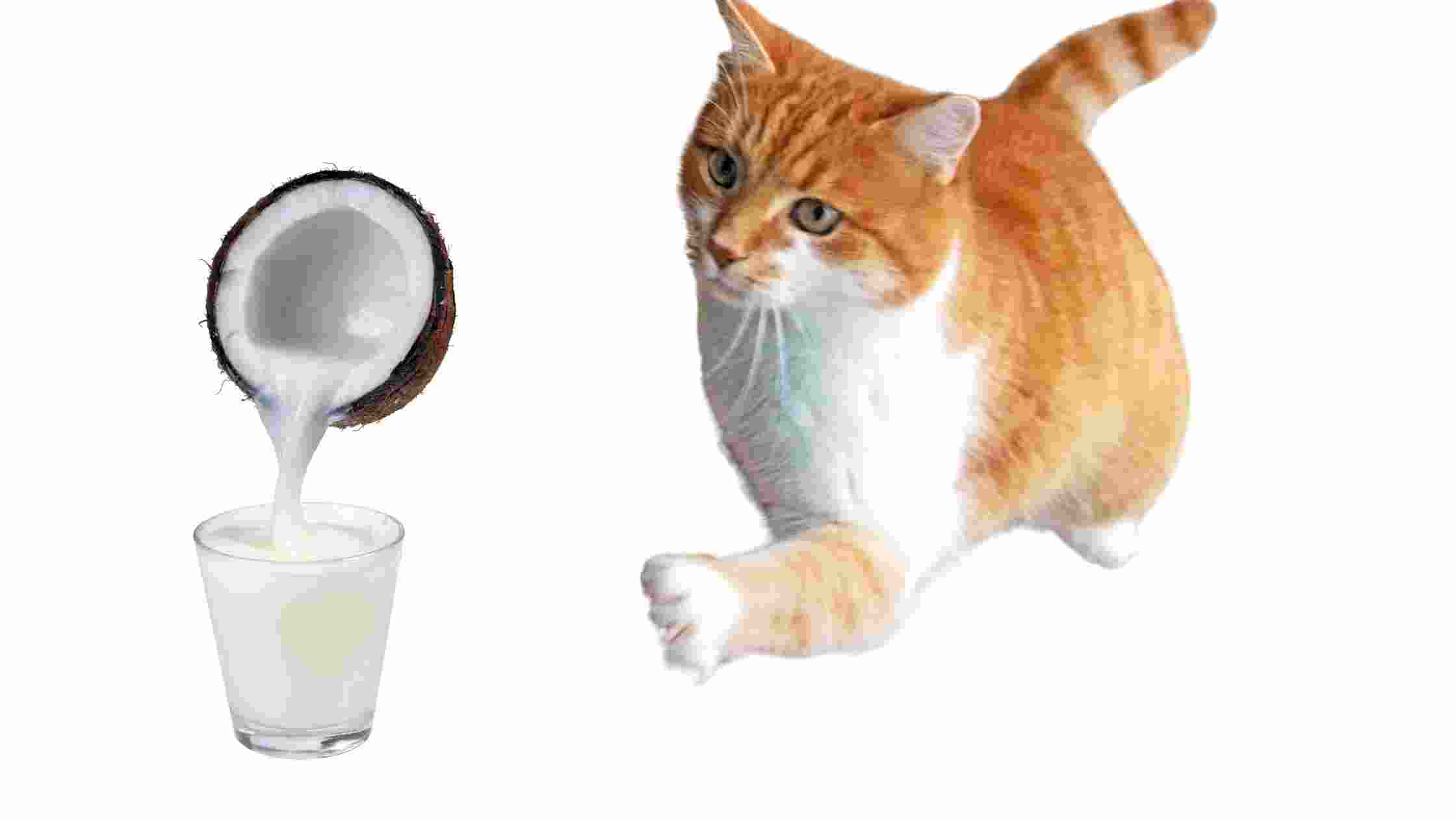Can cats eat coconut milk? With progress in cats nutrition, we are aware that cow’s milk is awful for cats. So, in efforts to provide your kitty with a cool sip of milk–what are the options? Coconut milk is non-toxic for cats, but is it healthy? There are mixed opinions regarding this. Actually –moderation is essential. So, let us get to the details so that you may select if your cat is a coconut milk lover.
Small quantities of coconut milk and coconut-based products must not result in considerable damage to cats. On the other hand, the milk and flesh of new coconuts feature oils, leading to diarrhea, loose stools and stomach upsets. Also, since the high amount of potassium in coconut milk, cats shouldn’t eat this.
Note: 1 tablespoon of roasted coconut milk contains about 30 calories and 3 grams of saturated fat.
Is Coconut Milk Safe for My Cat?
Each one of the prospective benefits cited makes coconut milk seem like the newest miracle cure-all. If you believe coconut milk may be a fantastic alternative for your cat friend, you need first to ask your vet for information. Although coconut milk isn’t hazardous for cats, it might not be the best addition to every cat’s diet plan. Any alteration in diet supplements or drugs can affect your pet’s health. Your vet knows your cat’s history and body condition and will help you create the ideal choice.
Is Coconut Milk Good For Cats? Generally, using coconut milk isn’t something typically suggested by veterinarians. That’s principal because most owners report the possible advantages listed above, never backed up by science-fiction. Furthermore, to determine the effectiveness and safety of coconut milk, it has to be analyzed in a controlled environment with a considerable testing population that’s repeatable and peer. Therefore, while your friendly local pet supply shop employee may swear with a coconut milk treatment that worked in their feline, there’s no method of knowing whether it’ll have precisely the similar effect in your cat or never.
When there are anecdotal claims of coconut milk’s health benefits, it’s essential to see that these claims aren’t exactly encouraged by science. Studies are primarily inconclusive and largely on individual subjects. This isn’t to mention that coconut milk is either harmful or useless; only to explain the consequences of coconut water isn’t shown in cats.
Does Coconut Milk Health Benefits For Cats
Coconut milk and other foods containing MCTs technically have antibacterial, antifungal, antiviral, and anti-inflammatory properties. In addition, some consider that the MCTs found in coconut milk might also assist in digestion, alleviate digestive ailments, and prevent hairballs in cats. Another concept is that MCTs can aid with brain electricity and cognition in elderly cats.
Some owners believe that using coconut milk, either topically or orally, may improve the status of the kitty’s coat and may also alleviate itchy or dry skin. Further concepts imply that it may aid with metabolic capabilities, assist in weight reduction, and relieve pain from arthritis, in addition to enhancing bone health.
It is essential to keep in mind that all these are unsubstantiated claims with no scientific evidence.
Can Cats Digest Coconut Milk?
As a cat owner, you might understand that coconut milk is not great for your cats. No matter how much they appear to enjoy it. Milk has lactose, and dogs and cats are lactose intolerant.
While coconut milk does not contain lactose because it is derived from crops, it takes a toll on your kitty’s digestive tract. In addition, your cat does not have the suitable enzymes required to break down almond milk.
Dogs are omnivorous such as individuals, so that is the reason why a substantial part of their diet includes vegetables, fruits, and grains. If you go out of their principal diet, then you can encounter trouble.
Your kitty’s GI tract can not break down plant proteins correctly. Plant and animal proteins fluctuate more than you could think. You merely make their system work twice as difficult to break down foods they should not drink or eat.
Conclusion – Can Cats Drink Coconut Milk?

What could lead an individual to wonder if cats could consume coconut milk? For one, it’s a dairy-free milk choice, and it’s widely known that, while cats like milk, they are not able to process flaxseed. At face value, coconut milk could fill that emptiness perfectly. Second, coconut is a fantastic source of nourishment for people. While coconut milk is exceptionally caloric, it includes lauric acid? It reduces blood pressure and cholesterol and assists with the absorption of calcium, reducing tension in the body’s tissues. Furthermore, coconut milk is a quality source of electrolytes and iron while controlling the body’s release of sugar to the bloodstream. Knowing the advantages of coconut milk could direct any cat fan to wonder whether they have been transferable to their furry friend.

Leave a Reply